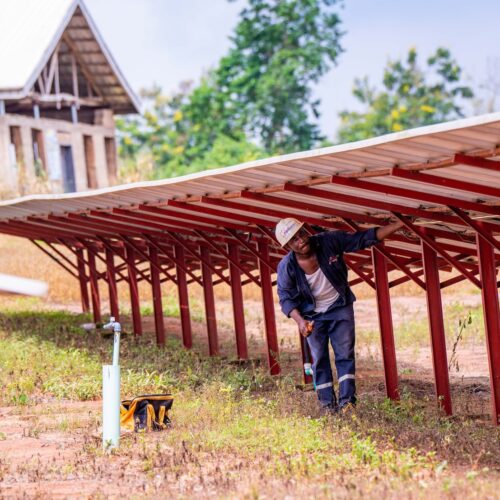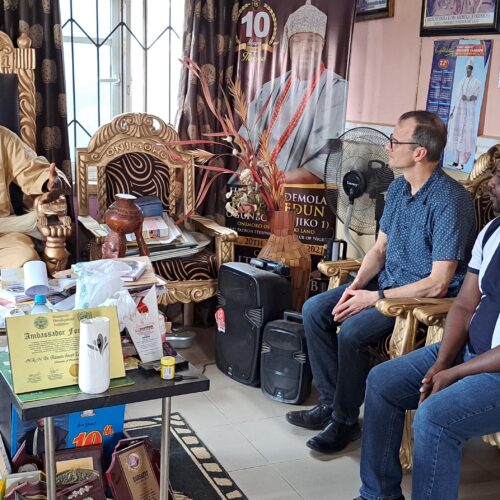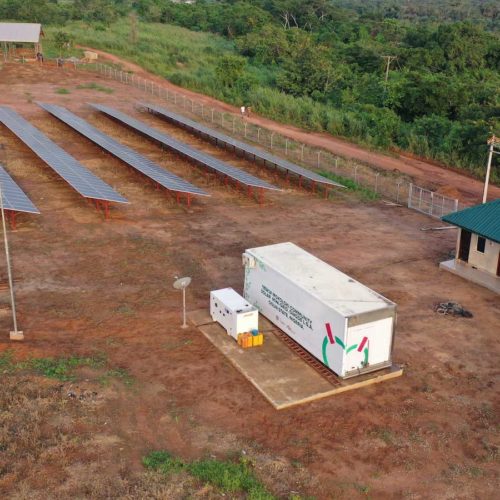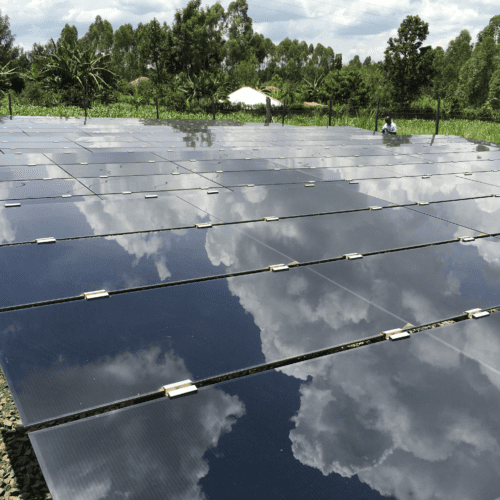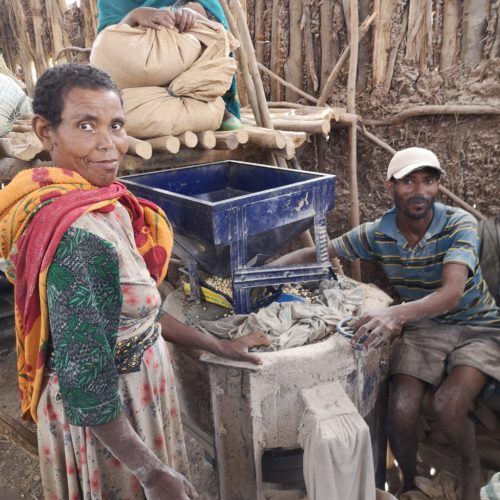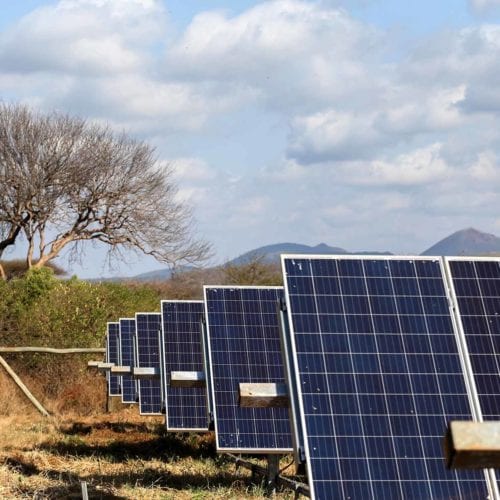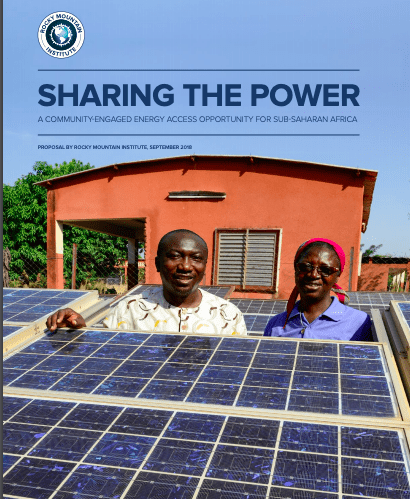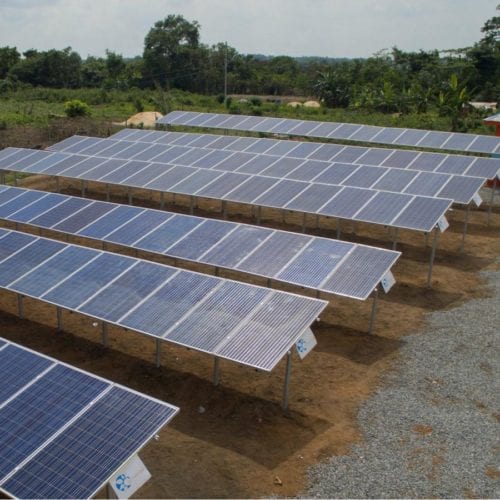Article
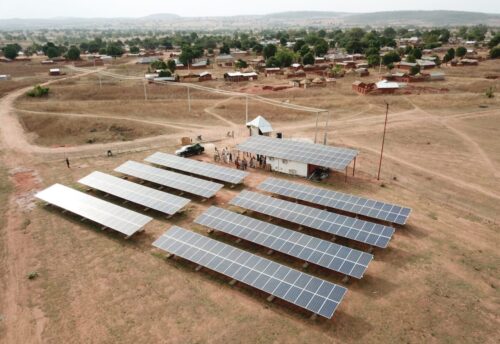
SHARING THE POWER
Community-Led Minigrids
Growing rural electrification and development efforts across sub-Saharan Africa increasingly include minigrids as a key component. Minigrids—self-contained energy generation and distribution systems, which usually operate at the community scale—have the potential to dramatically improve community-scale livelihoods, economics, and productivity; drive health outcomes; and support a shift to cleaner energy.
RMI’s Sharing the Power project will develop minigrid projects across sub-Saharan Africa to demonstrate the impact of community-led design on project outcomes, with support from the Dutch Postcode Lottery. We hope to integrate some of these projects into countries’ existing minigrid programs, to support ongoing efforts while testing a unique and scalable approach that models the development potential and financial sustainability of minigrid projects.
THE COMMUNITY-LED APPROACH
We define community-led minigrids as those that are designed in close partnership with the host community and account for local dynamics to address perceived challenges and development goals. In practice, community-led minigrids can have a variety of ownership structures that could include a stake for the community cooperative, government, private developer, utility, or others. Community-led projects can implement innovative customer acquisition and management processes and more easily tailor the project to local needs.
Sharing the Power will test the community-led approach by assessing five preliminary hypotheses:
- Community-led minigrids can provide long-lasting and appropriate electricity in Africa.
- Minigrids with communal ownership structures can demonstrate financially sustainable O&M over the project’s lifetime.
- Community-led minigrids are cost-competitive with other models of minigrid development and operation.
- Minigrids developed based on existing social and political structures result in greater community engagement and higher collections efficiency, and can sustain for longer, in each community.
- Community leadership of minigrid projects drives local economic growth and diversification.
PARTNERS WE SEEK
To support community-led minigrid pilots, we seek a set of partners who, through a collaborative approach, can provide the following skills:
- Significant community knowledge and local engagement expertise to facilitate site selection, community engagement, and a community-led design process
- Expertise on productive uses of electricity who can provide training and support community development of a productive use program
- Ability to design and build minigrid systems with community input
- Experience operating and maintaining minigrid systems
- Experience building technical capacity with rural communities
- Ability to support project development through co-finance
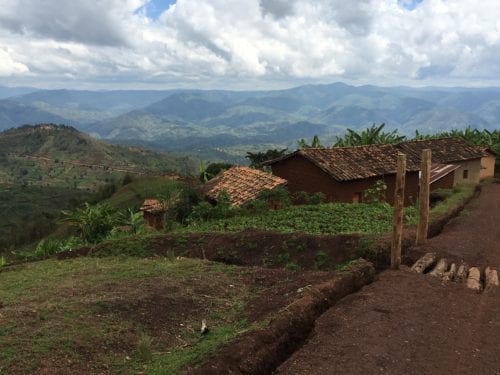
Work With Us
RMI Resources
Article
Case Study
Article
Article
Report
Videos
Video
Video
Video
Video
Media
ESI Africa
Proposal for the community minigrid program
Quartz
